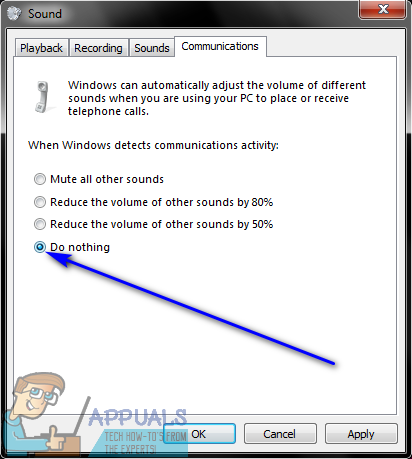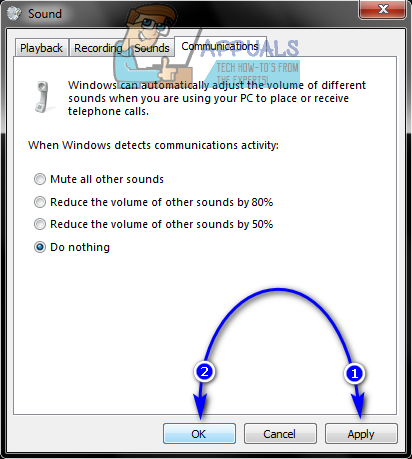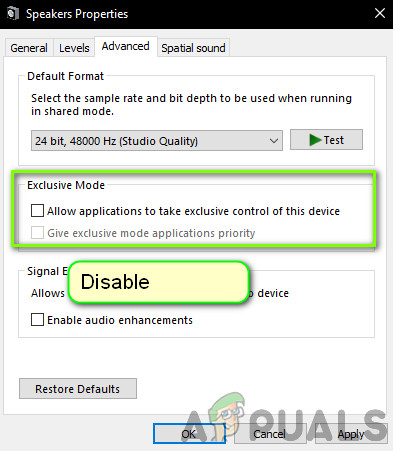How to Stop Skype From Lowering the Volume of Other Sounds
By default, when you receive a Skype call or are on one, the volume of any other sounds being played by your computer is reduced by up to 80% (exact value depends on your preferences). This isn’t even Skype’s doing – in the interest of transparency, this is actually something that Windows does, not something that Skype does. Windows counts Skype calls as “communications activity”, and Windows is configured to reduce the volume of all other sounds by a specific percentage whenever it detects communications activity on the system. That being the case, whenever a Windows user receives a Skype call or is on one, the volume of any other application or game that is running at the same time is lowered significantly.
This can be remedied at the moment by simply turning the master volume on your computer up, but while doing so will increase the volume of other sounds to an audible degree, it will increase the volume of the Skype call to an extent where it becomes deafening instead of comfortable. In addition, in some cases, Windows bugs out and simply forgets to turn the volume of other sounds back up after it reduces it for an incoming/ongoing Skype call, which can prove to be nothing short of aggravating.
Method 1: Changing Communication Activity Setting:
Thankfully, however, Windows turning down the volume of other sounds as soon as it detects communications activity such as a Skype call is a feature that can be disabled, and this is true in the case of every single version of the Windows Operating System out there. To stop Skype from lowering the volume of other sounds, all you need to do is:
- If you’re using Windows 7 or Windows 10, locate and right-click on the Sound icon in the taskbar (represented by a Speaker icon). If you’re using Windows 8 or 8.1, first switch to Desktop mode and then locate and right-click on the Sound icon in the taskbar.
- Click on Sounds in the resulting context menu.

- Navigate to the Communications tab.

- Under the When Windows detects communications activity:, you will find the options Windows has to offer for when it detects communications activity such as a Skype call. When Windows detects communications activity on a computer, it can either mute all other sounds, reduce all other sounds on the computer by 80%, reduce all other sounds by 50% or do nothing at all. These are the only four options Windows has to offer and there is no functionality to create your own, customized option. Select Do nothing by clicking on the radio button located directly next to it.

- Click on Apply and then on OK.

- Restart your computer.
When the computer boots up, simply check to see whether or not the problem has been resolved. If all went well, you will see that Windows no longer reduces the volume of other sounds being played on your computer (even by a small margin) when it detects communications activity such as a Skype call on the computer. In addition, going through the process above makes sure that the volume of other sounds being played on your computer is never reduced regardless of what communications activity Windows detects, not just Skype calls.
Method 2: Disabling Exclusive Control of Applications
Sound systems have advanced options where they allow applications to take exclusive control of them to change volume or manipulate it. This feature might seem handy but is known to cause glitches where Skype lowers the volume of other applications automatically whenever you are using it. In this solution, we will disable the option and see if this does the trick.
- Open the Audio Device as we did in the previous solution and click on the Advanced tab.

Disable Exclusive Control of Applications - Now, uncheck both the options underneath the heading of Exclusive Mode. Save changes and exit. Relaunch Skype and see if the problem is resolved for good.